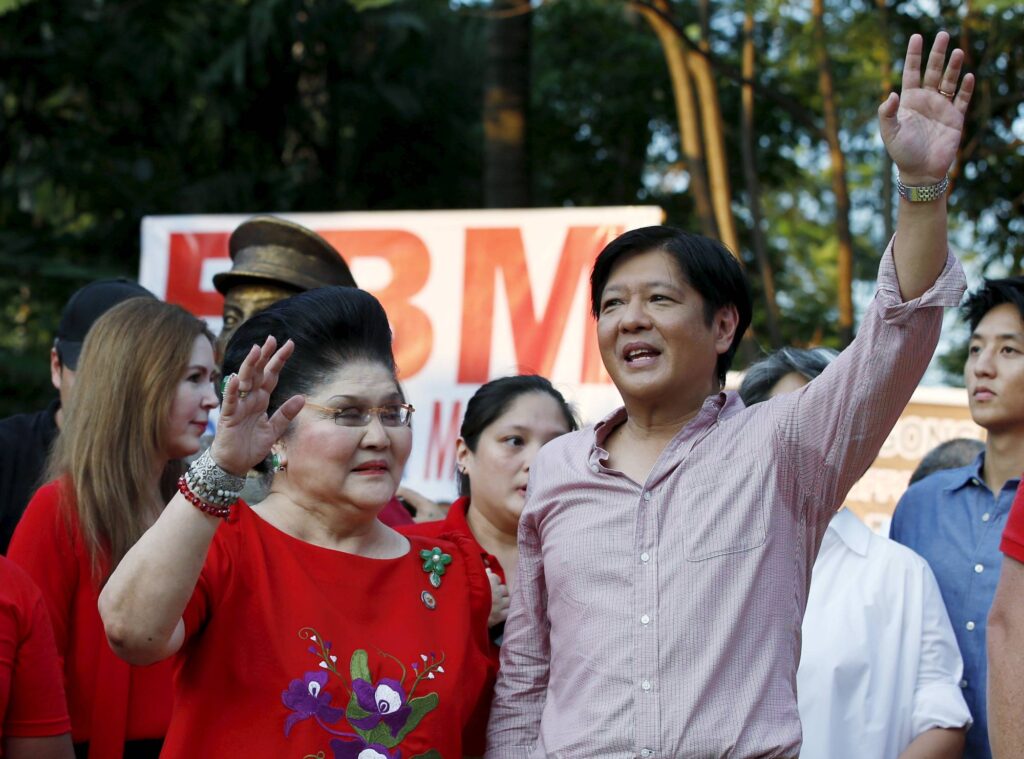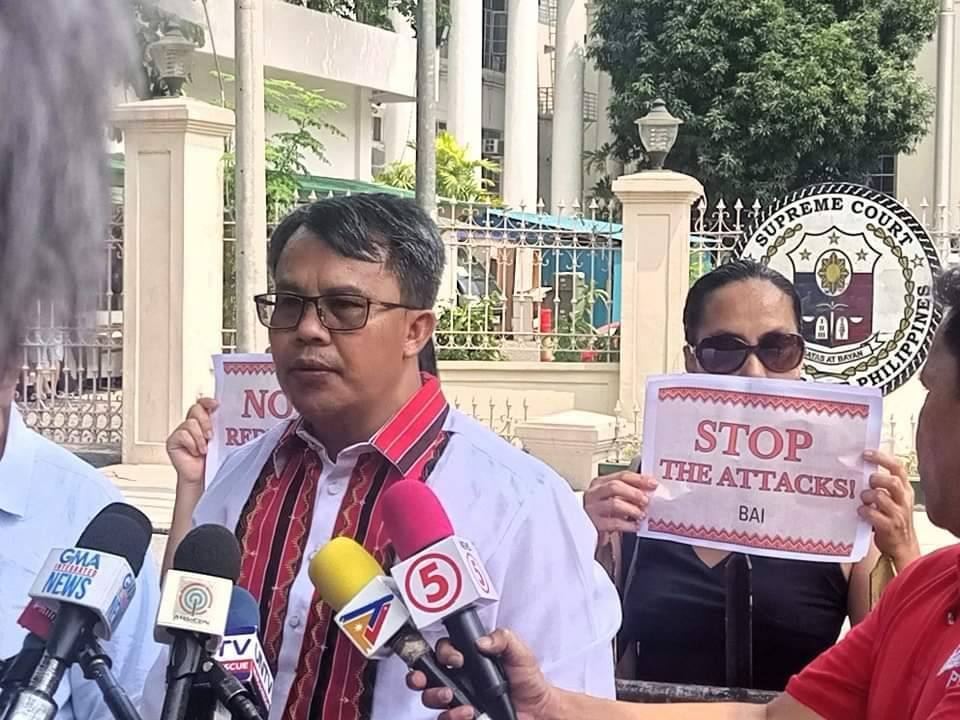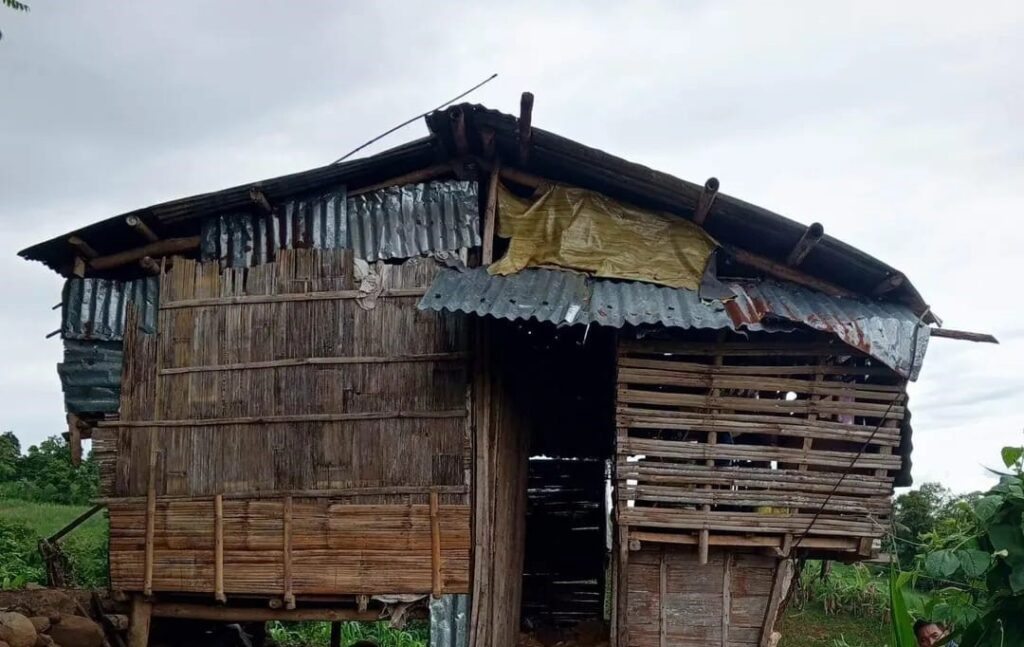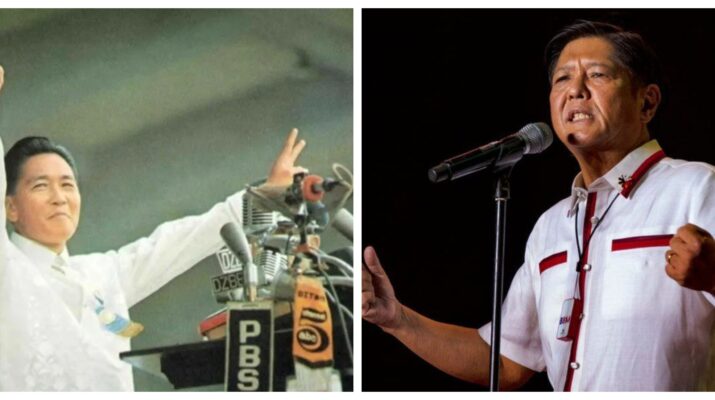On September 21, 1972 then-President Ferdinand Marcos Sr. signed Proclamation no. 1081, an order placing the country under martial law which heralded the start of a violent era in Philippine history.
It would be a case of poetic irony that his only son and namesake, Ferdinand “Bongbong” Marcos Jr., would be elected as president fifty years after that declaration – winning last year’s presidential elections.
Present times are indeed reminiscent of the first Marcos dictatorship, which lasted from 1965 to 1986, not only because there is again, a Ferdinand Marcos in office, but more so because many of the repressive actions by government during the era of martial law are again seen today.

This month, two environmental activists went missing after being abducted by armed men in Bataan. A few weeks later, the Jhed Tamano and Jonila Castro were presented by the National Task Force to End the Local Communist Armed Conflict (NTF-ELCAC), who alleged that the two “surrendered” to the Philippine military in Bulacan province.
The allegation, of course, is that the two young activists had joined the revolutionary New People’s Army (NPA) and had surrendered to state forces. This tactic of justifying enforced disappearances of activists by accusing them of being armed combatants is a common tool used by dictatorships to silence dissent, most notably in Latin America and in the Philippines.
This theory was confirmed by Tamano and Castro themselves. During a press conference, ironically organised by the NTF-ELCAC themselves, the two youth activists bared that they were abducted by the military and refuted claims that they had surrendered.
We can trust the veracity of their testimonies as they were presented by the NTF-ELCAC themselves, amidst being surrounded by the very organisation that abducted them, they bravely told the truth. It would have been far easier to stick to the NTF-ELCAC’s narrative that they were NPA surrenderers.
The Marcos government has effectively committed state-backed terrorism: they kept these two youth activists under custody without due process and also rendered them incommunicado from their kin while held. The NTF-ELCAC had also lied by claiming the two were communist rebels, thereby deceiving the public whose taxes bankroll their very operation.

Such use of subterfuge and deception by the state is nothing new in Philippine history, in fact, it was more widespread during the martial law era of Marcos Sr. What is alarming however is that enforced disappearances by the military, like in the case of Tamano and Castro, are already happening within a year of Marcos Jr. in power.
Tamano and Castro were also not the first activists to suddenly disappear under the present Marcos administration; as noted by this blog, there seems to be a new wave of desaparecidos emerging under the current regime. This has many parallels with the first Marcos regime, when 926 activists went missing – most of whom were never seen again.
The first Marcos regime also suppressed dissent by tagging political dissidents as terrorists or slapping trumped-up charges against them. We are seeing this trend again under the present Marcos administration.
In July, the government designated four indigenous rights activists from the Cordillera Peoples Alliance (CPA) as terrorists under the draconian Anti-Terrorism Act. Sarah Abellon, Jennifer Awingan, Windel Bolinget and Stephen Tauli were accused of being members of the NPA; this despite a court having already rejected rebellion charges against the four activists.
Rather than heeding to the judiciary’s decision, the NTF-ELCAC insisted on targeting these activists by tagging them as terrorists anyway. This is not due process, but rather mere arrogance.

The four activists have not been proven to be guilty of any crimes, rather they have merely been staunch critics of government infrastructure projects that threaten their ancestral lands. Such a predicament is no different from the plight of activists during the martial law era under the first President Marcos when IP activists, such as Macli-ing Dulag, were also targeted by the state for opposing destructive infrastructure projects.
Dulag was a respected tribal leader and opposed a massive dam that the Marcos Sr. regime wanted to construct in the Chico River which would have displaced 100,000 families from his tribe. The tribal leader would later be assassinated by elements of the Philippine Army’s 44th Infantry Battalion, and it is believed that his killing was a result of his leadership in opposing the dam.
Besides enforced disappearances and the harassment of indigenous peoples, another tool that Marcos Jr. has emulated from his late father are massacres. During the martial law years, massacres targeting peasants were rife; the most famous examples being the 1974 Palimbang Massacre and the 1985 Escalante Massacre.
Last June, a family of four were murdered in the remote areas of Himamaylan, Negros Occidental. The Fausto family were a household of four, and whose patriarch – Rolly Fausto – had previously been red-tagged by the Philippine military. On the night of 14 June, members of the 94th Infantry Battalion opened fire on the Fausto home – killing all four members, including their two children aged 15 and 11 years old.
The Philippine Military did not waste time in controlling the narrative, claiming that the Faustos were government informants and casted blame on the NPA for allegedly “cleansing” intelligence assets of the military. However, this claim of being military informants was denied by the Faustos’ surviving relatives, who instead revealed that the family of four were more afraid of the military rather than the NPA.

Forced abductions, massacres, and false charges are all examples of tactics used by a fascistic government in subverting dissent. This was well-documented during the martial law era of Marcos Sr., and we are again witnessing these atrocities under the new Marcos regime.
Incumbent President Bongbong Marcos is showing that it is not only his name that he inherited from his father, but also the old man’s lust for blood and propensity to use state forces against dissenters also.
The rest of the world was aghast by the atrocities of the first Marcos regime, in fact, a significant factor that led to Marcos Sr.’s demise was the lost of support he had from the international community. It is time for the rest of the world to pay attention and take notice that those very same atrocities that happened under Marcos’ martial law, are being repeated today by his son.
Commemorations of the declaration of martial law will surely be accompanied by chants of, “Never again!” – hopefully, we will take those chants to heart and ensure that the brutality of martial law will never again be repeated.

